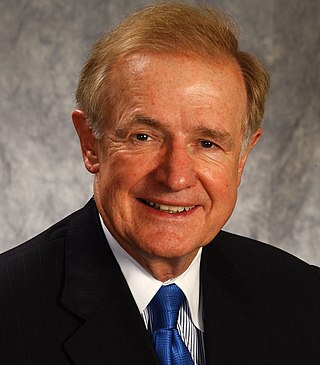This article needs to be updated.(March 2021) |
The Senate Banking Subcommittee on Financial Institutions and Consumer Protection is one of five subcommittees within the Senate Committee on Banking, Housing, and Urban Affairs.
This article needs to be updated.(March 2021) |
The Senate Banking Subcommittee on Financial Institutions and Consumer Protection is one of five subcommittees within the Senate Committee on Banking, Housing, and Urban Affairs.
The Subcommittee on Financial Institutions oversees banks, savings associations, credit unions and other financial institutions, including deposit insurance, and e-commerce. It also oversees the Federal Home Loan Bank System, regulatory activities of the Federal Reserve System, the Office of the Comptroller of the Currency and the Office of Thrift Supervision within the Treasury Department, the Federal Deposit Insurance Corporation (FDIC), and the National Credit Union Administration
| Majority | Minority |
|---|---|
|
|
| Ex officio | |
|
|
| Majority | Minority |
|---|---|
|
|
| Ex officio | |
|
|
U.S. House Financial Services Subcommittee on Financial Institutions and Consumer Credit
The Glass–Steagall legislation describes four provisions of the United States Banking Act of 1933 separating commercial and investment banking. The article 1933 Banking Act describes the entire law, including the legislative history of the provisions covered herein.

Donald Wayne Riegle Jr. is an American politician, author, and businessman from Michigan. He served for five terms as a Representative and for three terms as a Senator in the U.S. Congress.

The United States Senate Committee on Banking, Housing, and Urban Affairs, also known as the Senate Banking Committee, has jurisdiction over matters related to banks and banking, price controls, deposit insurance, export promotion and controls, federal monetary policy, financial aid to commerce and industry, issuance of redemption of notes, currency and coinage, public and private housing, urban development, mass transit and government contracts.

The Community Reinvestment Act is a United States federal law designed to encourage commercial banks and savings associations to help meet the needs of borrowers in all segments of their communities, including low- and moderate-income neighborhoods. Congress passed the Act in 1977 to reduce discriminatory credit practices against low-income neighborhoods, a practice known as redlining.

The Office of the Comptroller of the Currency (OCC) is an independent bureau within the United States Department of the Treasury that was established by the National Currency Act of 1863 and serves to charter, regulate, and supervise all national banks and thrift institutions and the federally licensed branches and agencies of foreign banks in the United States. The acting Comptroller of the Currency is Michael J. Hsu, who took office on May 10, 2021.

The United States House Committee on Financial Services, also referred to as the House Banking Committee and previously known as the Committee on Banking and Currency, is the committee of the United States House of Representatives that oversees the entire financial services industry, including the securities, insurance, banking and housing industries. The Financial Services Committee also oversees the work of the Federal Reserve, the United States Department of the Treasury, the U.S. Securities and Exchange Commission and other financial services regulators.

The Federal Financial Institutions Examination Council (FFIEC) is a formal U.S. government interagency body composed of five banking regulators that is "empowered to prescribe uniform principles, standards, and report forms to promote uniformity in the supervision of financial institutions". It also oversees real estate appraisal in the United States. Its regulations are contained in title 12 of the Code of Federal Regulations.

The Financial Institutions Reform, Recovery, and Enforcement Act of 1989 (FIRREA), is a United States federal law enacted in the wake of the savings and loan crisis of the 1980s.
Title 12 of the United States Code outlines the role of Banks and Banking in the United States Code.
The Senate Banking Subcommittee on Securities, Insurance, and Investment is one of five subcommittees within the Senate Committee on Banking, Housing, and Urban Affairs.
The Senate Banking Subcommittee on Housing, Transportation, and Community Development is one of five subcommittees within the Senate Committee on Banking, Housing, and Urban Affairs.
The Senate Banking Subcommittee on Economic Policy is one of five subcommittees within the Senate Committee on Banking, Housing, and Urban Affairs.
The Senate Banking Subcommittee on National Security and International Trade and Finance is one of five subcommittees within the Senate Committee on Banking, Housing, and Urban Affairs.
The United States House Financial Services Subcommittee on Financial Institutions and Monetary Policy is a subcommittee of the House Committee on Financial Services. Jurisdiction over domestic monetary policy was transferred to it at the start of the 118th Congress, before which the subcommittee was known as the Subcommittee on Consumer Protection and Financial Institutions.
Bank regulation in the United States is highly fragmented compared with other G10 countries, where most countries have only one bank regulator. In the U.S., banking is regulated at both the federal and state level. Depending on the type of charter a banking organization has and on its organizational structure, it may be subject to numerous federal and state banking regulations. Apart from the bank regulatory agencies the U.S. maintains separate securities, commodities, and insurance regulatory agencies at the federal and state level, unlike Japan and the United Kingdom. Bank examiners are generally employed to supervise banks and to ensure compliance with regulations.
The New York State Banking Department was created by the New York Legislature on April 15, 1851, with a chief officer to be known as the Superintendent. The New York State Banking Department was the oldest bank regulatory agency in the United States.
This article details the history of banking in the United States. Banking in the United States is regulated by both the federal and state governments.

The American Savings Promotion Act is a United States federal statute that authorizes some financial institutions to conduct a contest, known as a "savings promotion raffle," in which the sole consideration required for a chance of winning designated prizes is obtained by the deposit of a specified amount of money in a savings account or program, where each ticket or entry has an equal chance of being drawn.
Keith A. Noreika is an American lawyer who specializes in the regulation of financial institutions. He served as Acting Comptroller of the Currency from May 5, 2017, to November 27, 2017, following the 30th Comptroller of the Currency, Thomas J. Curry, and preceding the 31st Comptroller of the Currency, Joseph Otting. Noreika rejoined the law firm of Simpson Thacher on January 8, 2018. He joined Patomak Global Partners as Executive Vice President and Chairman of its Banking Supervision and Regulation Group on July 5, 2022.
The Dodd–Frank Wall Street Reform and Consumer Protection Act was created as a response to the financial crisis in 2007. Passed in 2010, the act contains a great number of provisions, taking over 848 pages. It targets the sectors of the financial system that were believed to be responsible for the financial crisis, including banks, mortgage lenders, and credit rating agencies. Ostensibly aimed at reducing the instability that led to the crash, the act has the power to force these institutions to reduce their risk and increase their reserve capital.